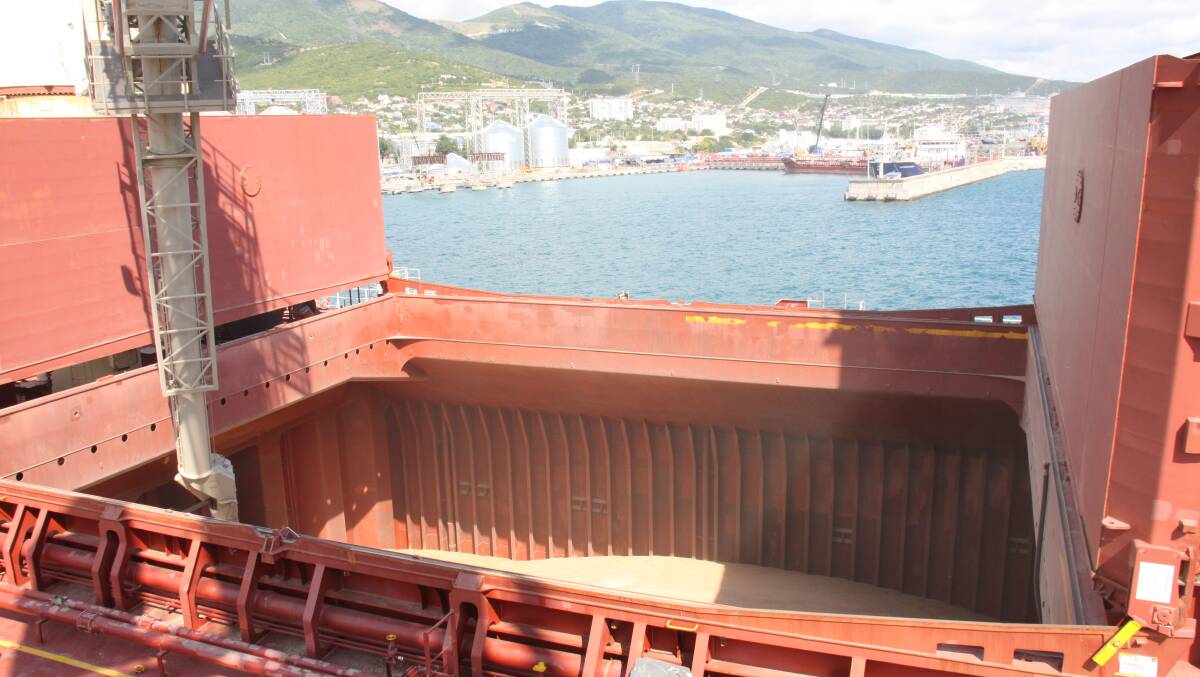
THE GRAINS industry remains cynical about the prospects of Ukrainian grain making it out to the broader market in significant volumes in spite of a widely publicised treaty between Ukraine and Russia that was set up to allow safe passage for grain ships on the Black Sea.
Subscribe now for unlimited access to all our agricultural news
across the nation
or signup to continue reading
Growing world food security concerns saw the United Nations broker the deal, in conjunction with Turkey, that would see vessels chaperoned out of Ukrainian ports into the heavily mined Black Sea and through to the Turkish-held Straits of Bosphorus.
Turkish officials will oversee the shipments in and out of the region to allay Russian fears of Ukraine using the ships to import weapons.
The deal, signed by both parties, is scheduled to stand for 120 days with a view to allowing some of the recently harvested Ukrainian crop to be sent to countries, particularly in the Middle East and North Africa, desperately short of supplies.
Officials from the Ukrainian government said they expected exports to resume from the port of Chornomorsk as early as this week followed by Odesa, then the port of Pivdeny.
However, there are already grave doubts as to the longevity of the deal.
Already there have been reports of a Russian missile striking the port at Odesa, one of the largest grain ports in Ukraine.
Andrew Whitelaw, Thomas Elder Markets, said he was pessimistic about the deal's prospects to tangibly impact world grain supply and demand.
"120 days really is not that long to meaningfully get grain out of Ukraine and to where it is needed," Mr Whitelaw said.
"There is talk about a few vessels that had been loaded and stranded waiting to go that will be ready to go this week but that is likely to be the exception rather than the rule," he said.
Mr Whitelaw also said there would be scores of logistical and legal issues to consider.
"A big question for me is whether the ship owners will want their vessel heading into a warzone, they will obviously be hard pressed to find anyone to write an insurance policy for them.
"From the trade's point of view, you've a really significant risk of getting a vessel booked and into the port and then getting stuck there due to the deal falling through and incurring massive demurrage costs, just because the treaty is in place does not mean people will be rushing out to get involved.
"If the market was to look to move grain out of Ukraine I'd say that grain would have to be at a significant discount to the rest of the world."
Rabobank senior grains and oilseeds analyst Cheryl Kalisch Gordon agreed.
"There was some optimism around following the deal and there is no doubt there are a lot of countries desperate for the grain but this deal is unlikely to truly alter the world supply and demand dynamic," Dr Kalisch Gordon said.
"To start with there has already been a substantial lowering of Ukrainian production caused by the conflict, whether it was because of unplanted area, a lack of crop inputs or a lack of harvest labour to take it off on time," she said.
"There will also be issues in internal movements in getting the grain to port and lastly, as we've seen with the strike, there has to be significant doubt as to how long the Russians will adhere to the treaty."
Markets have been volatile while the deal was being brokered then announced.
There were sharp falls in world prices with the expectation of more grain hitting the market but then news of the Russian strike on Odesa sent US futures soaring once again.


